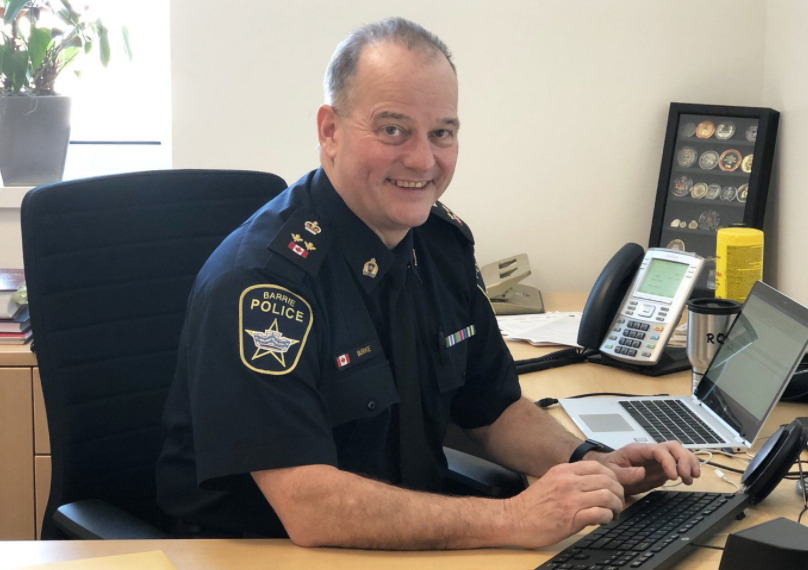When more than 1,000 people show up in the middle of a pandemic to support the Black Lives Matter movement in your city, you take notice.
Especially, if you are police.
Rob Burke, acting deputy chief with the Barrie Police Service, said police are aware of “the discussion that is going on, not only in our community, but across the globe.
“We are trying to be proactive and look for solutions, but not on our own, we are looking for solutions with the assistance of the community,” he said.
Burke is in charge of a systemic review of the Barrie Police Service, which was recently ordered by Chief Kimberley Greenwood as a “proactive” response to growing demands to address systemic racism within policing and the justice system.
Part of Barrie’s review will include input from community focus groups made up of citizens who will volunteer their time.
“We have our own view of how we think we are viewed in the community, but we are looking for community members to see how they view us,” Burke said. “We want to reflect the community; it’s all about trust and transparency and responsibility.”
Aleesha Gostkowski, an activist with a criminology degree, agrees a systemic review is a positive step, but questions how proactive the move is.
“I don’t think they are getting ahead of anything; I think if anything they are behind,” she said. “The BLM protests in Barrie should be a telltale sign that we need action now. We needed it months ago; we needed it years ago.”
Police services across the country have been struggling to reflect their communities as most are overwhelmingly made up of white males.
Burke agrees the service has yet to become the face of Barrie, where 2.7 per cent of the population is Black and 2.2 per cent is Asian.
“Barrie has certainly become more diverse,” Burke said. “The challenge with that is the community becomes diversified much more rapidly than we can keep up to it.”
Brandon Rhéal Amyot, an LGBTQ and BLM activist, says deep-rooted systemic issues make it difficult for police to attract more diverse members.
“Frankly, it’s an institution that was built on racism and colonialism. It is not particularly attractive to many members of the community,” said Rhéal Amyot, who has a diploma in Indigenous community development.
Gostkowski questions police tactics when it comes to recruiting visible minorities.
“Advertising and marketing seem to be the main way. They put a Black or brown person on the cover of a pamphlet and suggest if this person is a police officer, you could be, too. If we want to see more diversity, we need to see real change within the force.”
Barrie’s systemic review will draw from work done in Toronto and Peel Region.
“We are looking at using a local consultant to organize focus groups,” Burke said. “We have some internal expertise, but we need a consultant to organize, correlate, interpret and present the data.”



